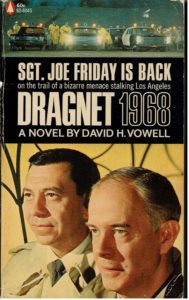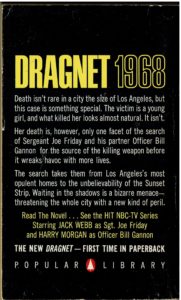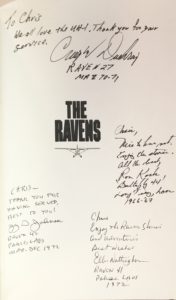…please put a penny in the old man’s hat.
Or, you know, buy some books. (Yes, most of these links are Amazon links, and yes, I do get a kickback if you buy things through them.)
Books from Lame Excuse Books make fine presents for everyone on your list! Or, at least, every SF fan on your list. And if they are not an SF fan, books from Lame Excuse will make them one! If you sign up for the mailing list now, you’ll get the brand new Lame Excuse Books catalog absolutely free!
Speaking of SF fans on your list, I confess: I have not read these yet. But I backed the Kickstarter, am a big fan of the author himself, and have heard good things about the books, so I’d also suggest you consider Travis J. I. Corcoran’s The Powers of the Earth and Causes of Separation. The Powers of the Earth won the Prometheus Award this year: how could you go wrong with this choice? (Okay, maybe the SF fan on your list isn’t a Libertarian. Yet. Like I said, how could you go wrong?)
Also unread by me, but in my “to read” stack, and another person I like: Amy Alkon’s Unf*ckology: A Field Guide to Living with Guts and Confidence.
Here are some books I did read, and liked, this year, that don’t pertain to my more esoteric interests. (If that’s your cup of tea, you probably already have the book on Savage rifles: as a matter of fact, you probably bought it when Ian mentioned it was on sale at Amazon.) They didn’t necessarily come out this year (one did, and one was reprinted): these are just a few things I liked, and that I think deserve more attention. I know we’re getting close to Christmas, but many of these books are available in Kindle editions and can be delivered more or less instantly, if your recipient has bought into the Kindle lifestyle.
Under an English Heaven: The Remarkable True Story of the 1969 British Invasion of Anguilla, Donald E. Westlake: I wrote about this back when the book was first re-released, and I finished it not too long after the Amazon shipment arrived. This is every bit as good as I thought it was going to be: definitely more Dortmunder than Parker, but with the added bonus of being 100% true. Wikipedia really doesn’t do justice to the whole bat guano insane story, especially the British involvement in it: even after being repeatedly whacked across the nose with a metaphorical 2×4, the British government still failed to understand that the people of Anguilla didn’t want to be governed by a ruler who threatened to strip the whole island bare and reduce them to “sucking on bones”. Enthusiastically recommended, and not just for Westlake fans.
The Jesuit Guide to (Almost) Everything, Reverend James Martin, SJ: This was a Half-Price Books discovery. I feel obligated to note here that Rev. Martin is kind of a controversial figure on the Catholic Twitters. Briefly summarizing something that’s more complex, he represents and advocates for a more liberal Church, which puts him crosswise with certain other Catholics who I also respect greatly.
With that said, I thought this was a very good book. It’s not just about being a Jesuit (though there’s a lot of Jesuit history in it), but about applying the Jesuit way of thought and general principles in your daily life, whether you are a Catholic or not. You could be a Zen Buddhist or even an agnostic: Father Martin’s idea is that applying these principles can make you a happier, more spiritually balanced person. This is a book I want to go back to, perhaps next summer when I’m on a break from other activities.
The Geometry of Love: Space, Time, Mystery, and Meaning in an Ordinary Church, Margaret Visser: I loved Visser’s Much Depends on Dinner when I read it (mumble mumble) years ago (and I need to re-read it). I was unaware of this book, though, until TJIC retweeted someone quoting from it (everything comes back to TJIC), so I went out and found a copy on Amazon…
…and I’m delighted I did. Visser’s basic idea is to take a “typical” church (St. Agnes Outside the Walls, in Rome) and show how the design and architecture of the church feeds into the liturgy of the church, how the liturgy of the church feeds into the design and architecture of the church, and how “all the pieces matter”. (Yeah, I know, I’m mixing the sacred with the profane. So shoot me.)
When I was reading this book, there was something on almost every page that was moving or profound or stunning or funny or that I just simply wanted to make a quote of the day over here. This is the kind of book that I want to buy more copies of and give out to people: that’s how strongly I feel about it.
Walking Through Holy Week, Karen May: Disclaimers: Karen May goes to one of the churches I go to, and I got this book for free because of something I was involved in at that church. All of that aside, I thought this was a wonderful guide to the liturgy and meaning of Holy Week. If you’ve ever wondered “What does this mean?” or “Why do we do this?”, this is the book for you. It’s also a book that I plan to re-read during holy week next year.
How to Invent Everything: A Survival Guide for the Stranded Time Traveler, Ryan North: I backed the Kickstarter for this (it was also the last Kickstarter I backed before I deleted my account) so I got the signed package deal. But you can still get the book from Amazon, or probably from your favorite bookstore.
When I was young, we had a two-volume set around the house called something like “How Things Work” that explained the basics of how everyday objects (like car engines, generators, etc.) worked. North (also the guy behind Dinosaur Comics) seems to be trying to do a similar thing, but not just concentrating on mechanical objects. The book itself is contained in a sort of narrative: basically, it’s intended to be a guide for a stranded time traveler so that they can rebuild civilization from scratch (or near it) to the point where their time machine can be repaired. I found parts of that narrative to be slightly annoying, honestly. But that’s a minor part of the book, and it’s offset by North’s coverage of, basically, how stuff works: everything from brewing beer and distilling alcohol, to designing a Pelton turbine, to “inventing” music and logic.
One of the things I like about North’s book is his concept that there are five foundational “technologies” you need if you want to re-invent civilization: spoken language, written language, a “non-sucky” number system, the scientific method, and a calorie surplus. I haven’t seen things laid out in that way before, and it makes a lot of sense. Language lets you communicate ideas, the scientific method lets you test them, numbers let you do math to implement your ideas, and surplus calories let you sit around and have ideas, instead of trying to scratch survival out of the dirt.
There are also a off-the-wall ideas, like “instead of inventing clocks that work on ships, let’s invent radio!” that I’m not completely sure I agree with, but are interesting to consider. (In fairness, most of these, like the radio idea, are only being relayed by North.)
In a way, it reminds me of James Burke’s “Connections” (which I rewatched a few months ago), except instead of showing how invention proceeds in fits and starts, the idea is to bypass all the fits and starts and speed things right along. If you have a curious and reasonably mature child (there’s some factual material in here about human reproductive biology, so parental advisory), you could do a lot worse than to give them a copy of this book and a flash drive with all the episodes of “Connections” on it for Christmas.
If anybody else has any recommendations, please feel free to leave them in comments. Even if you’re plugging your own book: go ahead and do it, just don’t be obnoxious about it.



